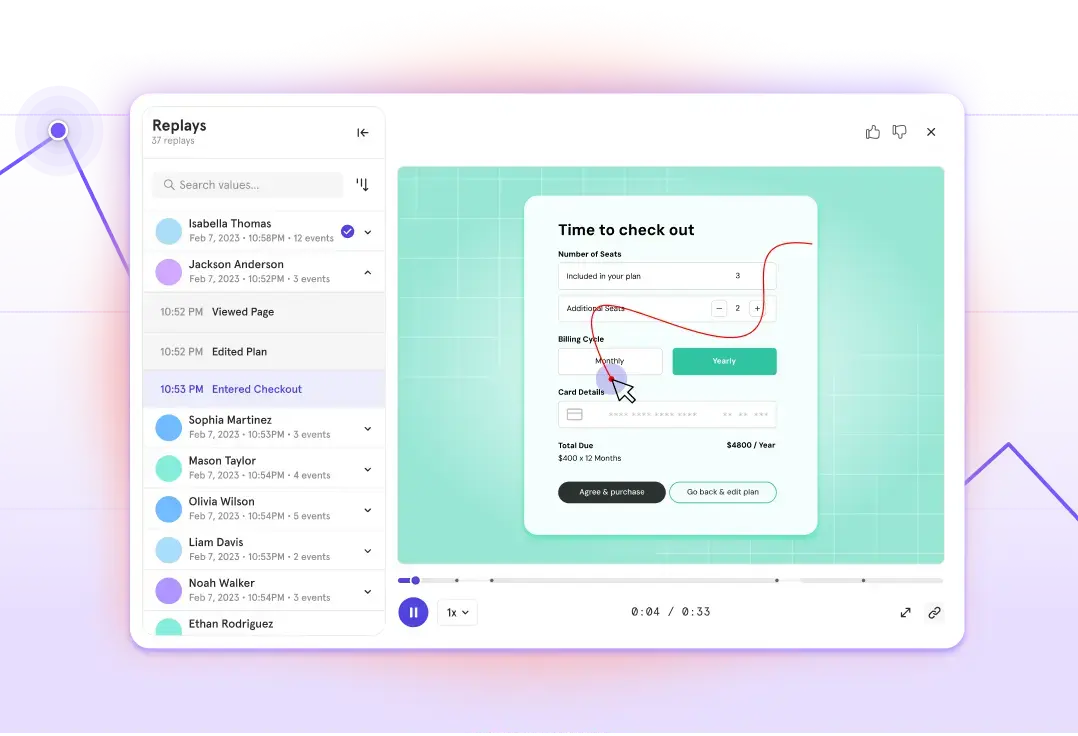Why Niccolo de Masi of Glu Mobile is banking on Kim K and Taylor Swift
Five years ago, Silicon Valley would’ve balked at the thought of Kim Kardashian on the cover of Forbes at all, much less for a mobile game. Today, with more than 40 million downloads, generating $71.8 million in revenue last year alone, and more than $100 million since its launch in 2014, Kim is a mobile mogul. “Kim Kardashian: Hollywood” saw blockbuster numbers equal to some of the top-grossing films of all-time.
But product managers and developers in gaming studios know she wasn’t alone in making a “Kimpact.” Her partner (and co-conspirator) in creating “Kim Kardashian: Hollywood” – setting off a chain reaction in the Celebrity App Industrial Complex – is mobile gaming visionary Niccolo de Masi, Glu Mobile’s CEO and chairman.
In the past two years, Glu Mobile has positioned itself as a stronghold in the mobile gaming industry, partnering with and launching titles from the Kardashian empire, celebrity chef Gordon Ramsay, and mega pop stars like Taylor Swift, Britney Spears, Katy Perry, and Nicki Minaj, as well as notable game brands such as Deer Hunter – a venture into virtual reality.
Glu Mobile’s dominance in mobile gaming began with Niccolo’s hypothesis that investing in “living intellectual property,” like celebrities, instead of “static IP,” like Angry Birds or Mario, builds a far more loyal following with higher lifetime values.
“The worlds of entertainment, celebrity, and mobile gaming are converging,” Niccolo told me in his corner office, looking out onto First and Howard in downtown San Francisco.
No longer beholden to traditional Hollywood business models, celebrities are transposing their star power to mobile gaming in order to give more direct access to their fans. As powerful tech companies like Apple build app ecosystems for content creators, entertainment is becoming more and more personalized not only from content creators, but also for users who can have unique interactions with their favorite celebrities through gamification.
In our one-on-one conversation, Niccolo de Masi, the leader at the helm of mobile gaming trends, shared with me his perspective on the Celebrity Industrial App Complex, and what game developers should expect from monolith players in the next few years.
In this coming age of gamified entertainment, Silicon Valley is about to take over Tinseltown.
The Mobile Mission
“I don’t want to be a one hit wonder, which most game companies are,” Niccolo told me. He was referencing Glu Mobile’s ever-widening portfolio since he joined as CEO in 2010. But Glu, which was founded in 2001 and had its IPO in 2007, isn’t his first gig.
“Glu is actually my second public company, second games company, and the third mobile entertainment company I’ve run since 2004. I got into gaming via music, believe or not, even after being an investment banker. But originally, I was a physicist and I made solar cells,” he said.
“I ended up running a public company in the UK called Monstermob Group PLC. It was a pioneer in the days when ringtones were all the rage – think back to feature phones, during the early 2000s.” This was a time when you could only get midi ringtones. In the early aughts, ringtones eventually progressed into full songs, near the time when the first-generation iPhone was released.
“At that point I thought, ‘there’s not going to be a lot of margin left in the music business if you have to pay master-length royalties to labels and carriers.’ That’s when I thought the place to be, as an artist, is probably going to be owning your own content,” he said.
The music industry and Hollywood-at-large is notorious for distributors and record labels taking major cuts from songwriters and artists. As time would prove out, eliminating the middlemen and creating a direct to consumer distribution model (a la downloads) would prove to be the most effective way for celebrities to spread their business and cut out overhead. Less than a decade later, celebrities and recording artists would break away from traditional Hollywood and music models with more lucrative, digital strategies of “going mobile.”
After selling Monstermob in ’07, Niccolo ran a gaming company called Hands-On Mobile. Then, as games transitioned from feature phones to smartphones, Niccolo went to Glu to help rebuild the balance sheets.
“We were a $30 million dollar market cap business, and we were going to run out of cash in nine months. Needless to say, it’s been a long road back from that,” he continued. “Since I started, we’ve almost tripled revenues and doubled the headcount,” he said.
After navigating a major technological shift in the industry, Glu’s prominent stance in the aftermath has stemmed from the foresight Niccolo had during his ringtone days. Eventually, content creators – specifically artists across Hollywood – would be vying to build their own mobile games for the sake of expanding their celebrity reach.
The Future of Gamified Entertainment
What has helped steer Glu Mobile up and to the right over the past six years has been an expansion of the studio’s portfolio. Niccolo’s business strategy began with the premise that “living IP” accrues more influence and value over time than static IP. To him, the power of celebrity in our culture is the greatest leverage for a title’s financial success.
“Celebrity, the concept of people being popular, has been around for millions of years. I’m sure that the early cave paintings were also of celebrities, so celebrity has been around at least from recorded history. We can remember famous gladiators in the Roman Empire,” he said, only half joking. “Now we have Taylor Swift and Kim Kardashian, and there’s been famous performers all throughout time. That will never go away as a concept.”
“Taylor Swift is the biggest person in the world by her social following. It’s quarter of a billion. Now you’ve got Taylor picking up users on YouTube, Vevo, Vine, Facebook, Twitter, Instagram, Snapchat – and there will be more platforms in the future,” he said.
Glu has mastered the formula for creating a new genre of mobile games – specific to the Hollywood elite. But to the more “hardcore” gamers in the industry, Glu Mobile’s brand may be viewed as “basic.” However, that hasn’t kept them from being one of the top-grossing studios in the world, raking in $250 million in 2015. As the pumpkin spice latte of mobile gaming, Glu Mobile’s commercial success has been built on celebrity partnerships and powerful social media distribution.
“Big social followings tend to grow, and that gives people unparalleled power today that they’ve never had before,” Niccolo explained. “The network effect – the idea that social media is one of today’s greatest distribution models – means that a Katy Perry, a Kim Kardashian, a Taylor Swift has an increasingly powerful distribution.”
People tend to think of celebrity status as fleeting because for most, it is. However, the big stay big, as exemplified by the celebrity elite like Beyoncé and Justin Timberlake, who have retained their celebrity status. Over time, their brands continue to grow. And in Glu Mobile’s view, the concept of using celebrity to promote games will not go away.
“Using celebrities to grow games is here to stay, and largely it’s because social media has twisted the real and virtual worlds up together. That’s what Kim and I do so well together,” he said. “Gordon’s doing the same for his game, too.”
What all of Glu Mobile’s celebrity titles have in common is an answer to a simple question: how does a star combine what’s happening in her everyday life with her game? Answering it allows players to escape into the world of that celebrity.
With the rise of the Celebrity App Industrial Complex, the mobile game has become an addition to the celebrity’s promotional repertoire. Once spokespeople for products, stars are now an integrated piece of the product. And unlike a TV show or Instagram post, a mobile game is a unique, virtual experience with a celebrity that cannot be replicated. Playing a video game with your favorite celebrity is not unlike putting yourself in their shoes.
“The personalization of media is something that we’re just starting to scratch the surface of,” said Niccolo. “We’re at a seminal point in the development of entertainment whereby personal brands are gaining more power than they’ve ever had in the value chain.”
More so than ever, the personalization of media is a big trend, and Glu Mobile is capitalizing on that trend for interactive apps and gaming. “Platforms and celebrities will be the winners in the entertainment value chain of the future,” Niccolo said, “Whereas traditional content creators with traditional Hollywood models are getting eaten.”
Silicon Valley takes Tinseltown
As social networking has created closer star-fan interactions, personalized and gamified mobile apps are the next iteration of the digital celebrity. With multiple millions of social media followers, celebrities are their own TV channel or their own media brand. They’re their own traffic driver.
“The Apples and Googles and Microsofts and Amazons of the world are building app ecosystems where they compete for people’s time,” said Niccolo. “What we’re seeing is a convergence of social networking and the gamification of entertainment. The traditional Hollywood studio model where you put actors and actresses on the payroll doesn’t really work anymore.”
Major technology platforms are sure to be the bedrock for this new industry as the digital celebrity builds her channels and her influence in the mobile age.
“Tim Cook believes the future of TV is apps,” Niccolo continued, “but I believe the future of everything in entertainment is in apps – magazines, television, movies, music – it’s all going to turn into apps.”
As the biggest technology titans support the platforms for celebrity mobile moguls, Niccolo reminds me that it’s Silicon Valley that has the power (and cash) to take on Hollywood, not the other way around.
“People forget that just the cash on hand at companies [like Apple, Amazon, and Microsoft] is bigger than the market caps of most movie studios, or record labels, which are relatively small companies,” he said. We may begin to see more technology companies acquire record labels and movie studios.
“Warner Brothers is a subsidiary of Time Warner, which might someday be a subsidiary of Apple, or something. It’s not impossible.” We’re already seeing tech companies like Netflix, Yahoo, and Amazon racing to create TV shows and movies.
As Niccolo attests, the power of the value chain in entertainment is moving towards platforms (e.g. technology companies). “Time Warner is not going to buy Apple or Google. The reverse could happen. The same with Amazon. Amazon could buy a Netflix.”
Today, Glu Mobile is the exemplar of how gaming studios are channeling celebrity to new distribution models just as Netflix, Tidal, and other streaming platforms, are pulling power out of what was the traditional entertainment model.
Glu Mobile is building games with celebrities to generate revenue because that’s their competitive advantage. And according to Niccolo de Masi, “The personalization of media is something that we’re just starting to scratch the surface of.”
Similar to how Hollywood studios provide the place for stars to do their work, major technology platforms are now subsuming that role. Now, the digital celebrity is a free agent.
With technical partners, like Glu Mobile, celebrities can use mobile platforms to produce and distribute their work to fans directly, generating more revenue than ever before (and without the Hollywood overhead). Without a doubt, the powers of entertainment are surging towards Silicon Valley.
—
Mixpanel is happy to announce that we now support Unity SDK. If you’re at Casual Connect, be sure to say hello at Booth #210.


